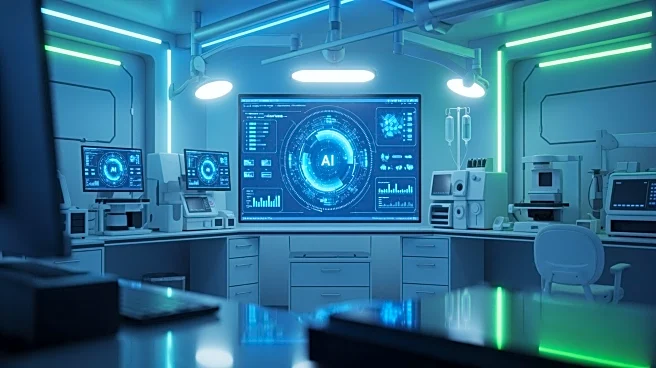What's Happening?
Co-Diagnostics, Inc., a molecular diagnostics company based in Utah, has announced the formation of a new artificial intelligence (AI) business unit. This initiative is led by Chief Technology & AI Officer Christopher Thurston and aims to integrate existing
and future AI applications into the Co-Dx™ Primer Ai™ platform. The company anticipates that this strategic move will streamline the development of AI-powered diagnostics, reduce the time-to-market for new tests, and improve situational awareness during health crises. Co-Diagnostics has been a pioneer in PCR technology innovation since its inception in 2013, and this new AI unit is expected to further enhance its capabilities in real-time point-of-care testing.
Why It's Important?
The establishment of an AI business unit by Co-Diagnostics is significant as it represents a step forward in the integration of artificial intelligence into healthcare diagnostics. By leveraging AI, the company aims to enhance the accuracy and efficiency of its diagnostic tests, which could lead to better health outcomes. This development is particularly relevant in the context of global health, as improved diagnostic tools can aid in the early detection and management of infectious diseases. The move also positions Co-Diagnostics to potentially predict outbreaks and pandemics, offering a proactive approach to public health challenges. Stakeholders in the healthcare industry, including physicians and patients, stand to benefit from these advancements through more reliable and timely diagnostic information.
What's Next?
Co-Diagnostics plans to continue developing its AI tools and models to further enhance its diagnostic capabilities. The company is focused on leveraging analytics from the deployment of its Co-Dx PCR Pro™ platform to improve outbreak prediction and real-time awareness. As the AI business unit progresses, Co-Diagnostics will likely seek regulatory approval for its Co-Dx PCR platform and related products, which are not yet available for sale. The success of these initiatives could lead to broader adoption of AI-driven diagnostics in the healthcare sector, potentially influencing industry standards and practices.
















